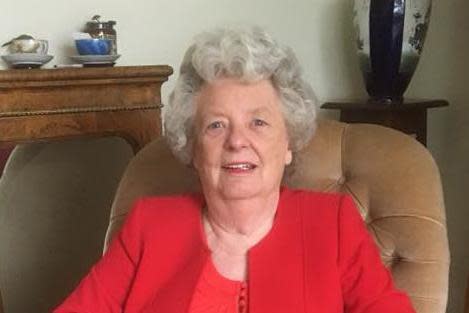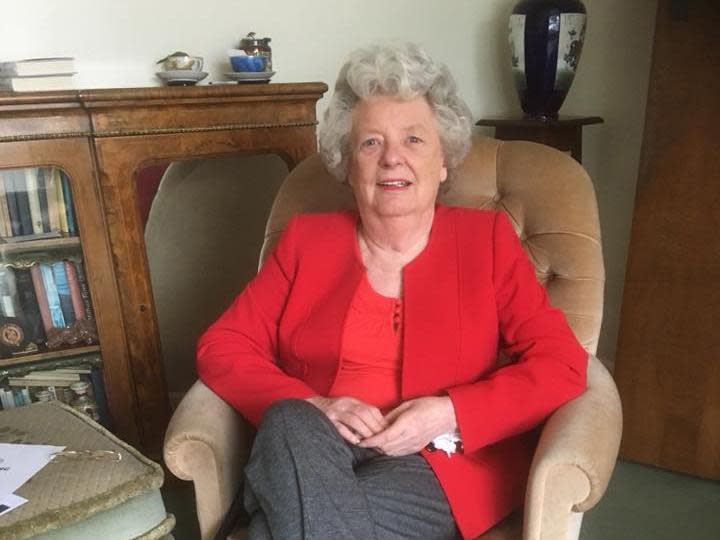Gosport families call for former police chief to face criminal charges over investigation failures
Grieving relatives of people killed by lethal doses of opiates at Gosport War Memorial Hospital are demanding Hampshire’s former chief constable face criminal charges for his failure to prosecute those responsible.
Gillian McKenzie, 84, the first person to report concerns to police, said she wants to see former head of Hampshire Constabulary Paul Kernaghan and other senior officers in the dock for perverting the course of justice.
She alleges that her formal complaint in November 1998 about the police investigation into the death of her mother Gladys Richards’ death was “sat on” by Mr Kernaghan and others for three years.
It follows intense criticism of the force’s investigations and its handling of concerns from families by a public inquiry which on Wednesday revealed at least 456 people were killed at the hospital in a 12-year period.
Yesterday, Hampshire police said they would “step back” from the investigation after the damning report concluded their officers’ “mindset was one of seeing the family members who complained as stirring up trouble”.
Ms McKenzie told The Independent: “I want those senior officers, including the chief constable Kernaghan, in court for perverting the course of justice.
“It had taken three years for formal complaints to be upheld by the PCA [Police Complaints Authority], instead of 120 days, and this had been due to the fact that my complaint had been sat on by Kernaghan and the professional standards department.
“Then when the PCA had started to look at it, and asked Hampshire Police to look at it, they we reinvestigating their own incompetence. There should have been another force investigating it.”
Mr Kernaghan became chief constable of Hampshire Constabulary in September 1999, after the first inadequate investigation into Ms McKenzie’s mother’s death had been concluded but while her complaint was still open.
The Gosport Panel report illustrated what it described as the force’s limited scope and depth of investigations, saying it indicated “involvement of senior officers including at chief officer level”.
Elsie Devine was another one of the patients killed by opiate overdoses at Gosport. Granddaughter Bridget Reeves said she backed Ms McKenzie’s calls for the officers responsible to face charges.
“If you read the section on Hampshire police, I tend to agree with Gillian’s point of view,” she told The Independent. “They did such a diabolical job.
“John James, one of the superintendents, had a formal complaint sent to the Independent Police Complaints Commission about him. That was then squashed and then later – and I don’t think that’s in the report – he was actually promoted.”
In the wake of the report, the families said that now the concerns they first raised 20-years ago have been vindicated, they want to see criminal charges against those responsible.
Chiefly against Dr Jane Barton, a GP and clinical assistant at the hospital, who the report said was “responsible” for the culture of lethal prescribing that became institutionalised on the wards.
But the heads of the police, hospitals and regulators who missed chances to intervene or investigate should all now face the courts, they said on Wednesday.
“All of these people need to go to court and be named and questioned as to why, in those positions of power, they did nothing when they were well aware of the culture and regime at Gosport,” Ms Reeves added.
The review concluded it was unlikely that there was collusion between these organisations to prevent justice being brought, saying it appeared they each individually acted to limit reputation and career damage, with the coincidental effect of frustrating the families’ efforts to uncover the truth.
This would make it hard to bring a criminal charge of perverting the course of justice, according to Raj Chada, a partner at the law firm Hodge Jones and Allen.
“It’s a high bar [for perverting the course of justice]. It’s the issue of intent, you’d have to deliberately know you were evading or preventing a particular course from happening,” he told The Independent.
“The offence that I think more likely would be ‘misconduct in a public office’, there is some case law about if somebody’s failed to investigate and you can be guilty of that – it’s a rather archaic offence.
“The difficulty in that is that it has to be wilful neglect, you’d have to look at the evidence to see if it was deliberately turning a blind eye to prevent a negative publicity or disclosure coming out.”
It would not be enough to show that a failure to investigate occurred because they did not appreciate the seriousness of the concerns.
In its third investigation, which concluded in 2006, Hampshire Constabulary did investigate 92 deaths but no prosecutions were brought and the force said evidence seen by the inquiry panel goes beyond what it had available.
On Thursday, the current chief constable Olivia Pinkney said her force would “step back” from the future investigation, adding: “I certainly would never want to absolve my force of its responsibilities, but we cannot hide from the fact that the legacy of what has happened has caused considerable damage to confidence in the agencies involved, including my own.”
The Independent has approached Mr Kernaghan for comment.

 Yahoo News
Yahoo News 

